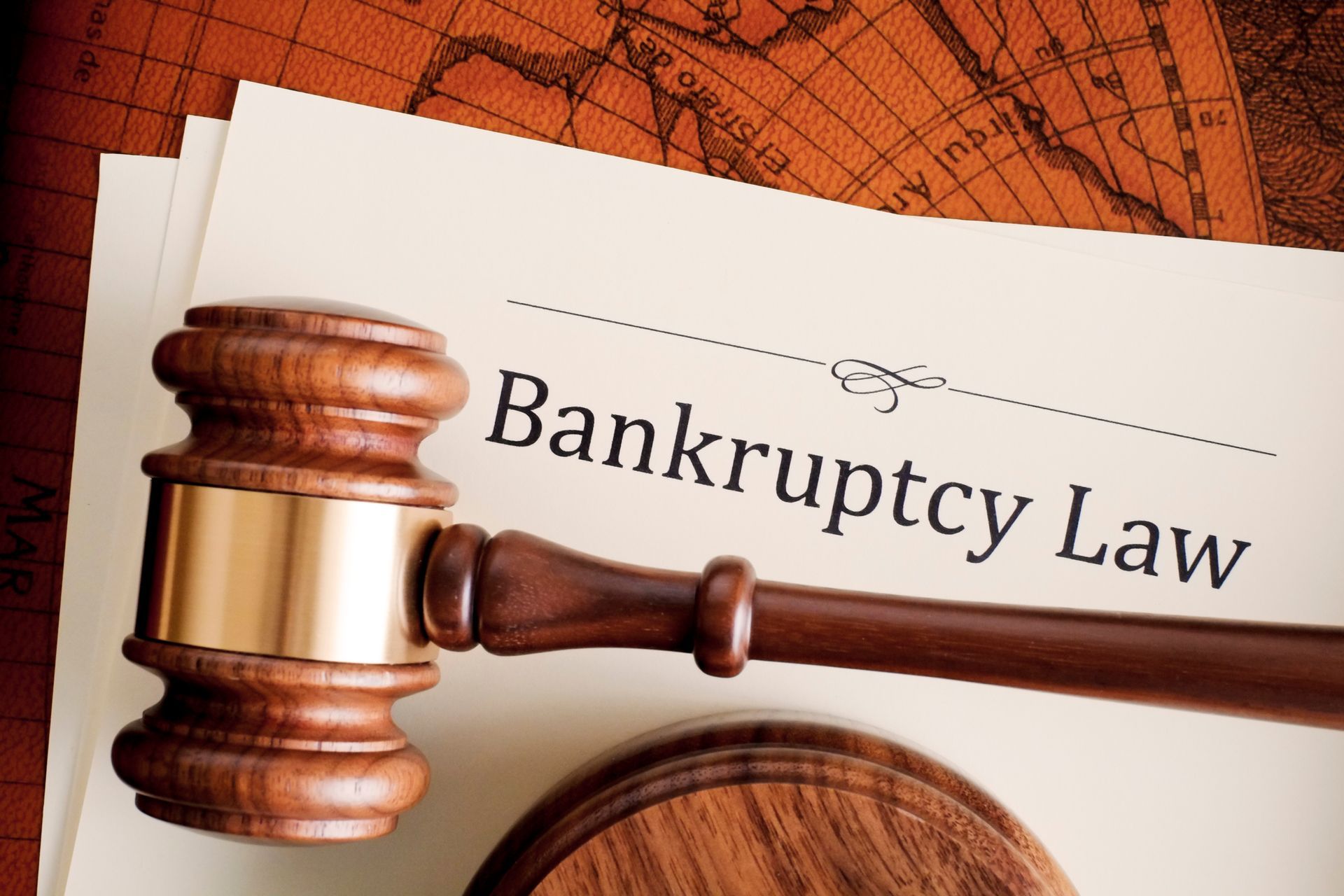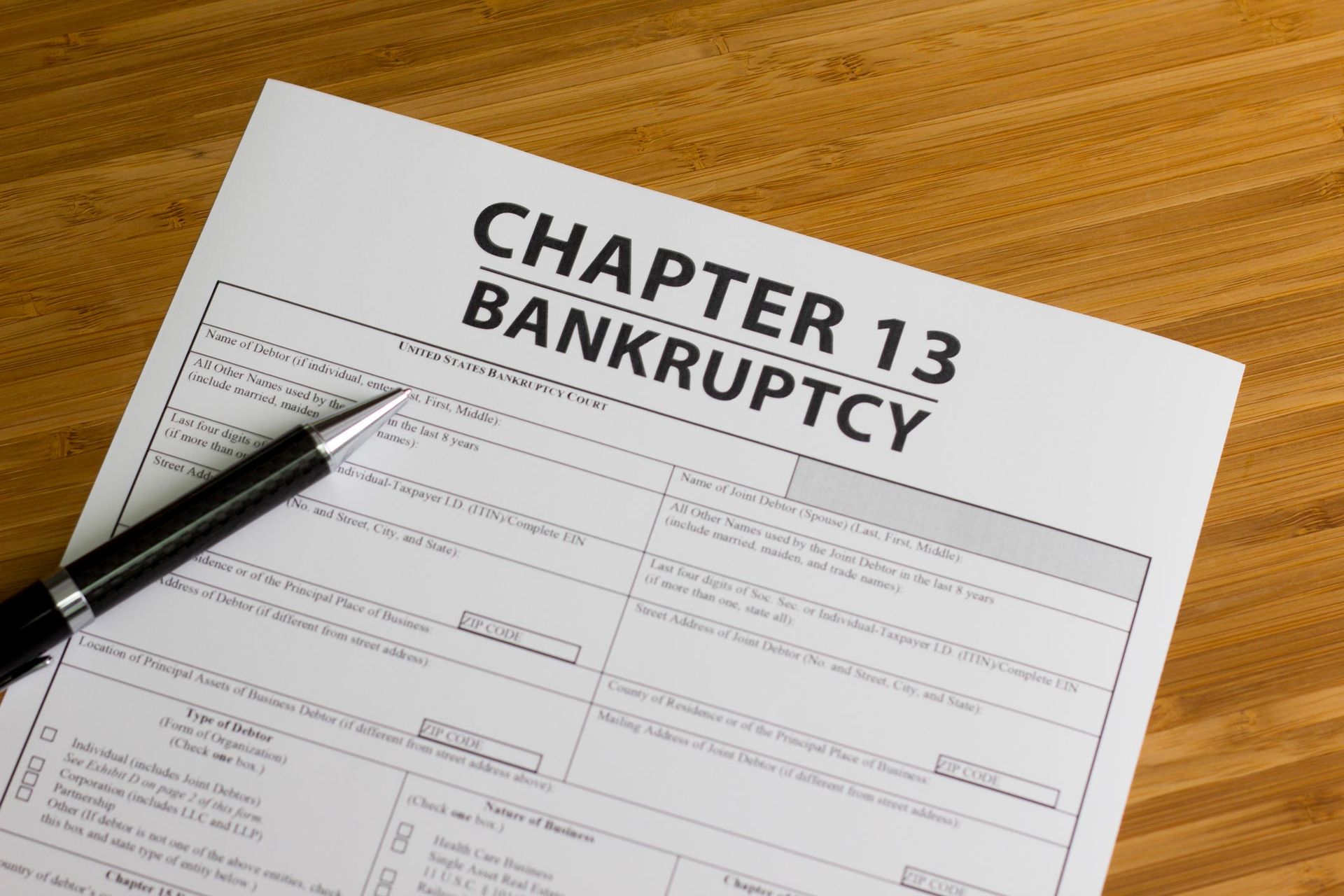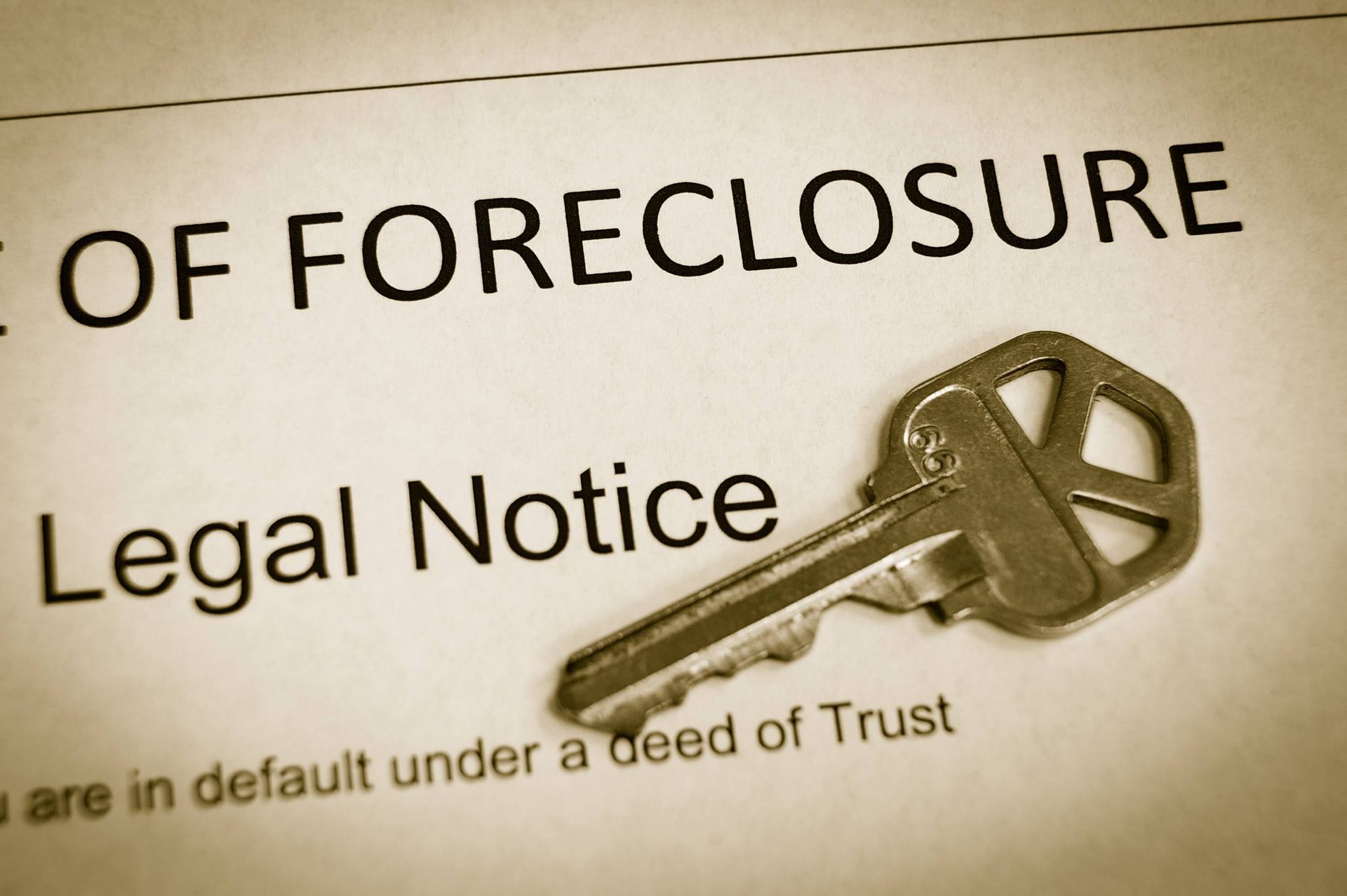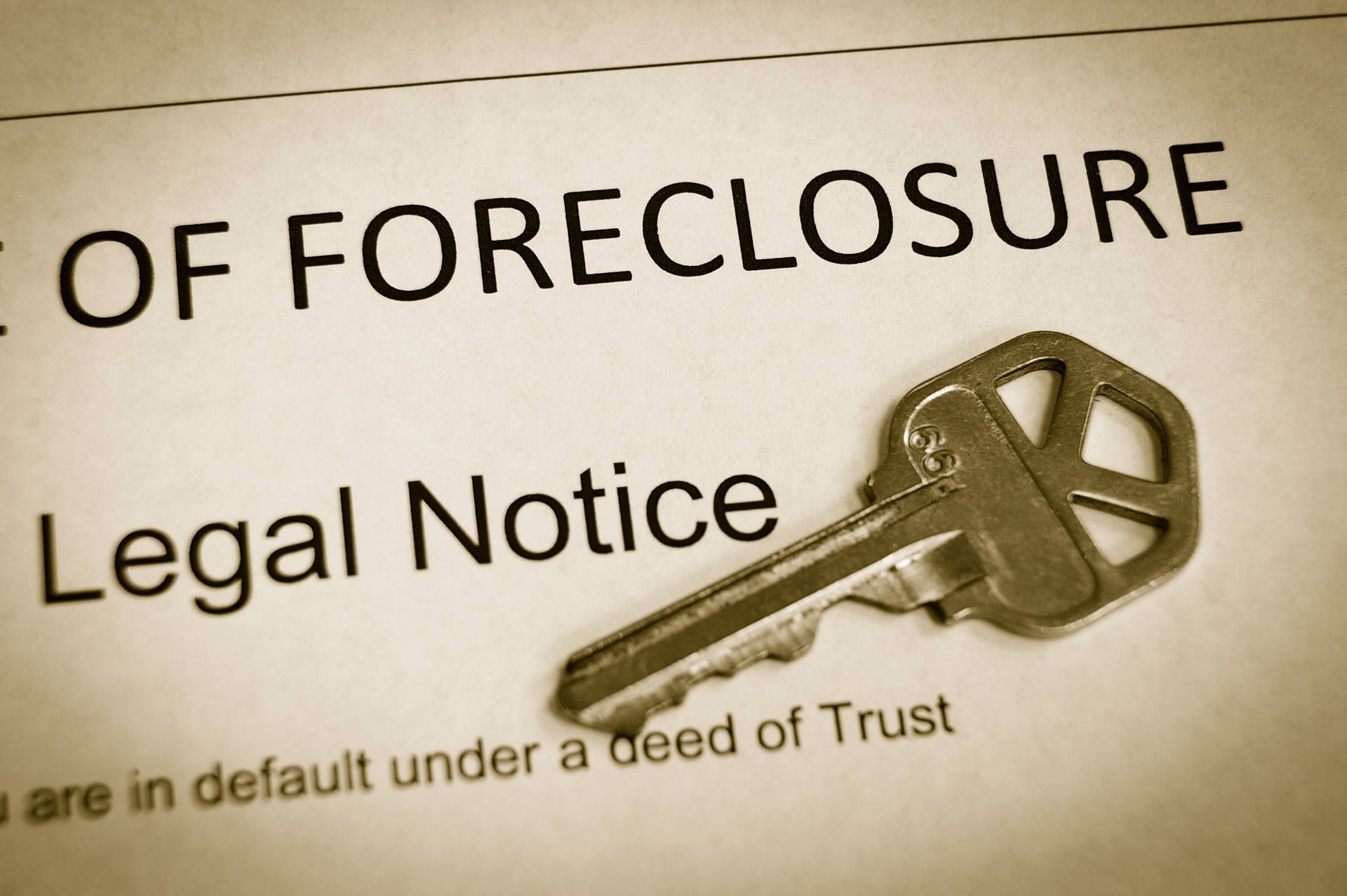
Same Day Telephone, Zoom or In-Person Meetings Available
Palm Beach County: (561) 689-6789
St. Lucie County: (772) 344-9090
Blog Layout
Common Terms Used With Chapter 7 Bankruptcy
December 18, 2023
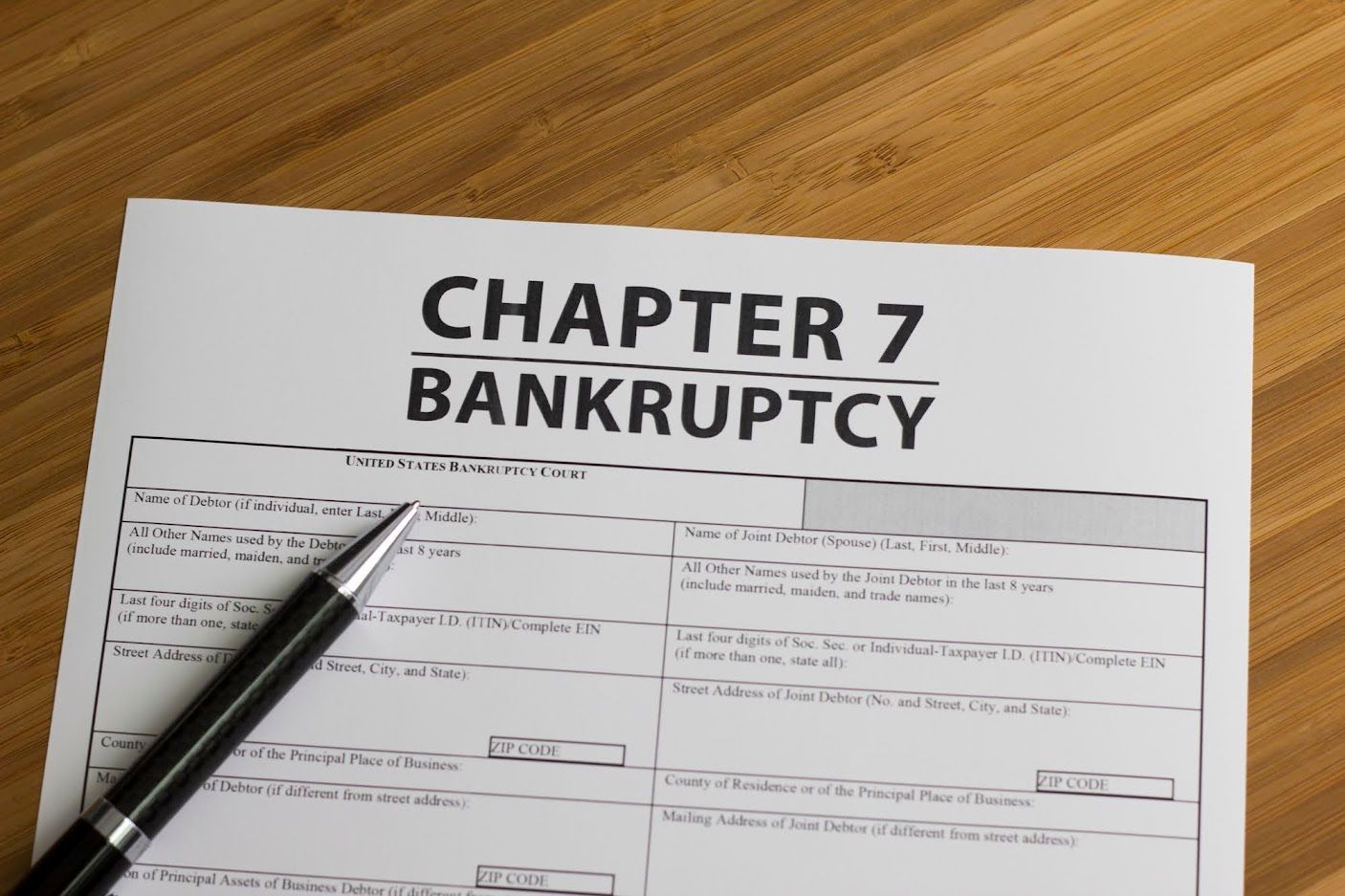
Understanding the ins and outs of Chapter 7 bankruptcy can be daunting, especially when faced with a barrage of unfamiliar legal terms. If you're considering filing for Chapter 7 bankruptcy or simply wish to understand the process better, you will need some basic knowledge of the common terms used in this process. Explore some common terms used in Chapter 7 bankruptcy petitions and proceedings.
In Chapter 7 bankruptcy, an automatic stay is a powerful tool that goes into effect immediately upon filing a bankruptcy petition. It forces all creditors to halt any collection actions against the debtor, including foreclosures, repossessions, garnishments, and evictions. This stay provides the debtor with much-needed breathing room to organize their financial affairs and devise a solution to their problems without the pressure of ongoing collection efforts.
The automatic stay remains in effect until the bankruptcy case is discharged or the creditor is granted relief from the stay. This can occur through a formal motion brought by the creditor, which the bankruptcy court must approve. In some cases, the court may deem it necessary to lift the automatic stay to allow a specific creditor to pursue its collection efforts.
A discharge releases the debtor from personal responsibility for paying off specific types of debt. However, remember that not all obligations, such as college loans, domestic support responsibilities, and some tax arrears, can be dismissed.
As a safeguard, the discharge of debt stops creditors from initiating legal action against the debtor or their property to recoup the discharged debts. This covers any contact regarding the debt, whether by phone, letter, or in person.
Exemptions enable debtors to keep certain assets and possessions, protecting them from recovery by creditors. The Bankruptcy Code lays out the many exemptions that a debtor may claim, which may be federal- or state-level protections based on the debtor's jurisdiction.
Both required and discretionary exemptions exist. Debtors have the right to claim either mandatory exemptions or discretionary exemptions. Some states provide more generous exemptions than others when filing for bankruptcy. Homes, vehicles, and personal belongings up to a particular value are examples of exempt property.
Once a bankruptcy petition has been submitted, a 341 meeting should be held no later than one month. Meeting participants include the trustee designated for the case, the debtor's bankruptcy counsel, and the debtor.
During this meeting, the trustee will interview the debtor about their assets, liabilities, and overall financial condition. The debtor swears to tell the truth under oath during this process. These inquiries verify the bankruptcy petition's accuracy and learn more about the debtor's financial situation.
Creditors are also welcome to attend, although their presence is not required. The bankruptcy petition contains the majority of the details required for this purpose. Creditors who choose to attend may submit inquiries on outstanding balances to the debtor.
The trustee's involvement in a Chapter 7 case is crucial since the debtor's assets will be under the trustee's care. They must find the debtor's nonexempt assets, sell them off, and divide the proceeds among the creditors. In doing so, the debtor relieves creditors by paying off their outstanding debts.
Trustee duties also include learning about the debtor's financial status, checking the validity of bankruptcy paperwork, and deciding whether or not creditors' proof of claim is valid. Further, they help keep the bankruptcy case's stakeholders apprised of developments and motions.
The trustee is responsible for administering the bankruptcy estate and completing all necessary reports and tax filings. In this way, every financial transaction is properly recorded, and taxes are paid promptly. The trustee may suggest civil or criminal legal procedures against the debtor if they have reasonable grounds to suspect fraudulent acts or other criminal conduct.
Contact us at Ozment Law for Chapter 7 Bankruptcy legal advice in West Palm Beach and Port St. Lucie, FL.
Automatic Stay
In Chapter 7 bankruptcy, an automatic stay is a powerful tool that goes into effect immediately upon filing a bankruptcy petition. It forces all creditors to halt any collection actions against the debtor, including foreclosures, repossessions, garnishments, and evictions. This stay provides the debtor with much-needed breathing room to organize their financial affairs and devise a solution to their problems without the pressure of ongoing collection efforts.
The automatic stay remains in effect until the bankruptcy case is discharged or the creditor is granted relief from the stay. This can occur through a formal motion brought by the creditor, which the bankruptcy court must approve. In some cases, the court may deem it necessary to lift the automatic stay to allow a specific creditor to pursue its collection efforts.
Discharge
A discharge releases the debtor from personal responsibility for paying off specific types of debt. However, remember that not all obligations, such as college loans, domestic support responsibilities, and some tax arrears, can be dismissed.
As a safeguard, the discharge of debt stops creditors from initiating legal action against the debtor or their property to recoup the discharged debts. This covers any contact regarding the debt, whether by phone, letter, or in person.
Exemption
Exemptions enable debtors to keep certain assets and possessions, protecting them from recovery by creditors. The Bankruptcy Code lays out the many exemptions that a debtor may claim, which may be federal- or state-level protections based on the debtor's jurisdiction.
Both required and discretionary exemptions exist. Debtors have the right to claim either mandatory exemptions or discretionary exemptions. Some states provide more generous exemptions than others when filing for bankruptcy. Homes, vehicles, and personal belongings up to a particular value are examples of exempt property.
341 Meeting
Once a bankruptcy petition has been submitted, a 341 meeting should be held no later than one month. Meeting participants include the trustee designated for the case, the debtor's bankruptcy counsel, and the debtor.
During this meeting, the trustee will interview the debtor about their assets, liabilities, and overall financial condition. The debtor swears to tell the truth under oath during this process. These inquiries verify the bankruptcy petition's accuracy and learn more about the debtor's financial situation.
Creditors are also welcome to attend, although their presence is not required. The bankruptcy petition contains the majority of the details required for this purpose. Creditors who choose to attend may submit inquiries on outstanding balances to the debtor.
Trustee
The trustee's involvement in a Chapter 7 case is crucial since the debtor's assets will be under the trustee's care. They must find the debtor's nonexempt assets, sell them off, and divide the proceeds among the creditors. In doing so, the debtor relieves creditors by paying off their outstanding debts.
Trustee duties also include learning about the debtor's financial status, checking the validity of bankruptcy paperwork, and deciding whether or not creditors' proof of claim is valid. Further, they help keep the bankruptcy case's stakeholders apprised of developments and motions.
The trustee is responsible for administering the bankruptcy estate and completing all necessary reports and tax filings. In this way, every financial transaction is properly recorded, and taxes are paid promptly. The trustee may suggest civil or criminal legal procedures against the debtor if they have reasonable grounds to suspect fraudulent acts or other criminal conduct.
Contact us at Ozment Law for Chapter 7 Bankruptcy legal advice in West Palm Beach and Port St. Lucie, FL.
Quick Links
Contact Information
Address:
Palm Beach County: 2001 Palm Beach Lakes Blvd Suite 500 West Palm Beach, FL 33409

Content, including images, displayed on this website is protected by copyright laws. Downloading, republication, retransmission or reproduction of content on this website is strictly prohibited. Terms of Use
| Privacy Policy

